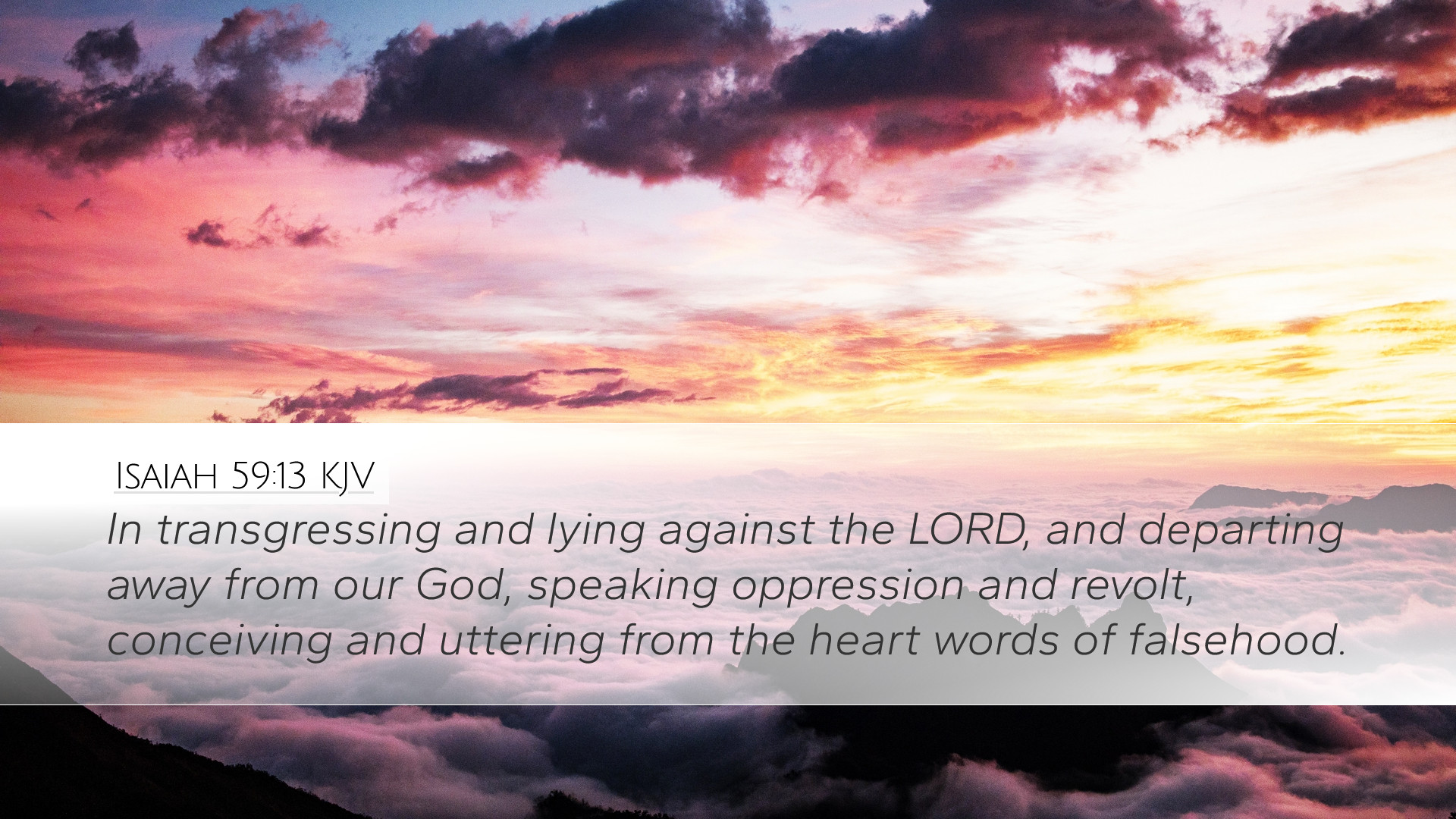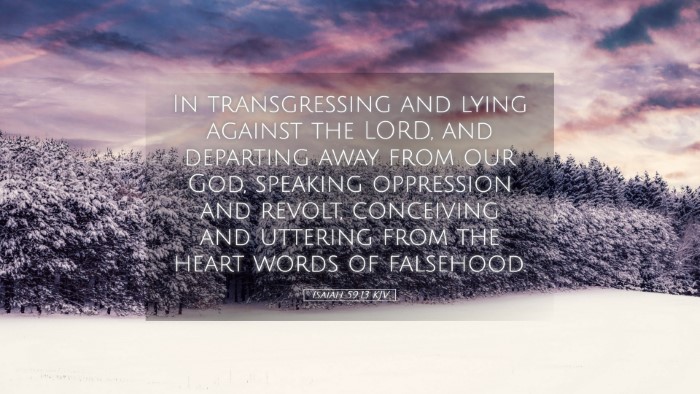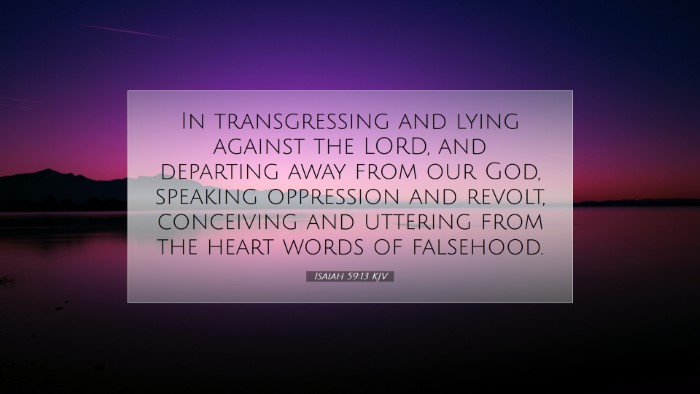Commentary on Isaiah 59:13
Isaiah 59:13 states: "In transgressing and lying against the LORD, and departing away from our God, speaking oppression and revolt, conceiving and uttering from the heart words of falsehood." This verse is a critical reflection on the condition of the people of Israel, illustrating their moral and spiritual decline. The reflections from various public domain commentaries provide a comprehensive understanding of this profound scripture.
1. Overview of the Context
This passage comes amid a larger discourse concerning the sins of Israel and the consequences of their actions. The prophet Isaiah addresses the people, reminding them of their covenant obligations and the implications of their transgressions. The context reveals a deepened alienation from God due to persistent disobedience.
2. Exegesis of Key Phrases
Transgressing and Lying Against the LORD
Matthew Henry notes that the notion of transgression indicates a deliberate crossing of established boundaries set by God. This is compounded by the act of lying, which symbolizes betrayal not only towards God but also towards their own covenant identity.
Departing Away from Our God
Albert Barnes emphasizes that departing signifies a falling away or an apostasy, where the people have distanced themselves from their divine calling. This geographical and spiritual distance illustrates their rejection of God’s authority and guidance.
3. The Nature of Speech
Speaking Oppression and Revolt
Henry reflects that the speech of the Israelites indicates a perverse use of the tongue, which has become a tool for oppression and insurrection against both God and their fellow man. Such language reflects a heart turned away from righteousness.
Conceiving and Uttering from the Heart Words of Falsehood
Adam Clarke draws attention to the heart as the source of all moral actions, reinforcing the idea that falsehood is birthed from a deceptive heart. This highlights the internal state of the people, suggesting that sin is not merely external but deeply rooted in their desires and beliefs.
4. Theological Implications
This verse serves as a somber reminder of the covenant relationship between God and His people. The implications of their transgressions extend beyond personal sin; they have communal and societal consequences, which are reflected in their interactions with each other and their vertical relationship with God.
The Holiness of God
Isaiah's message elevates the holiness of God against the backdrop of human sinfulness. Barnes notes that the holiness of God demands a response of purity and truth from His people. Their failure to live up to this standard brings about divine consequences.
The Call to Repentance
In light of these transgressions, there is an implicit call to repentance. The acknowledgment of sin is crucial for restoring the relationship with God. Clarke urges that confession and a return to righteousness are essential steps toward healing and renewal.
5. Practical Applications
For pastors and theologians, this verse is an important text for preaching and teaching about the nature of sin, the necessity of integrity in speech and action, and the call to a life of holiness. Here are several key applications:
- Self-Examination: Encouraging congregants to reflect on their integrity and authenticity in their relationship with God and others.
- Importance of Truth: Teaching the significance of truthful communication, and the dangers of deceitful words.
- Call to Holiness: Emphasizing the need for a lifestyle that aligns with the holiness of God that acknowledges His authority and sovereignty.
- Path to Restoration: Leading by example in fostering an environment where confession and accountability are encouraged.
6. Conclusion
Isaiah 59:13 reveals profound truths about the human condition, God's holiness, and the necessity of living truthfully before Him. By combining insights from public domain commentaries, we understand the weight of transgressions and the importance of repentance. As we navigate our own spiritual journeys, this text serves as both a warning and an invitation to deeper intimacy with our Creator.


